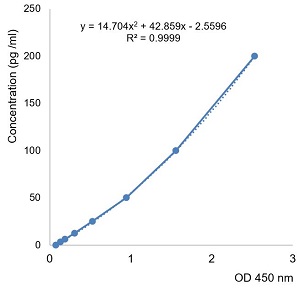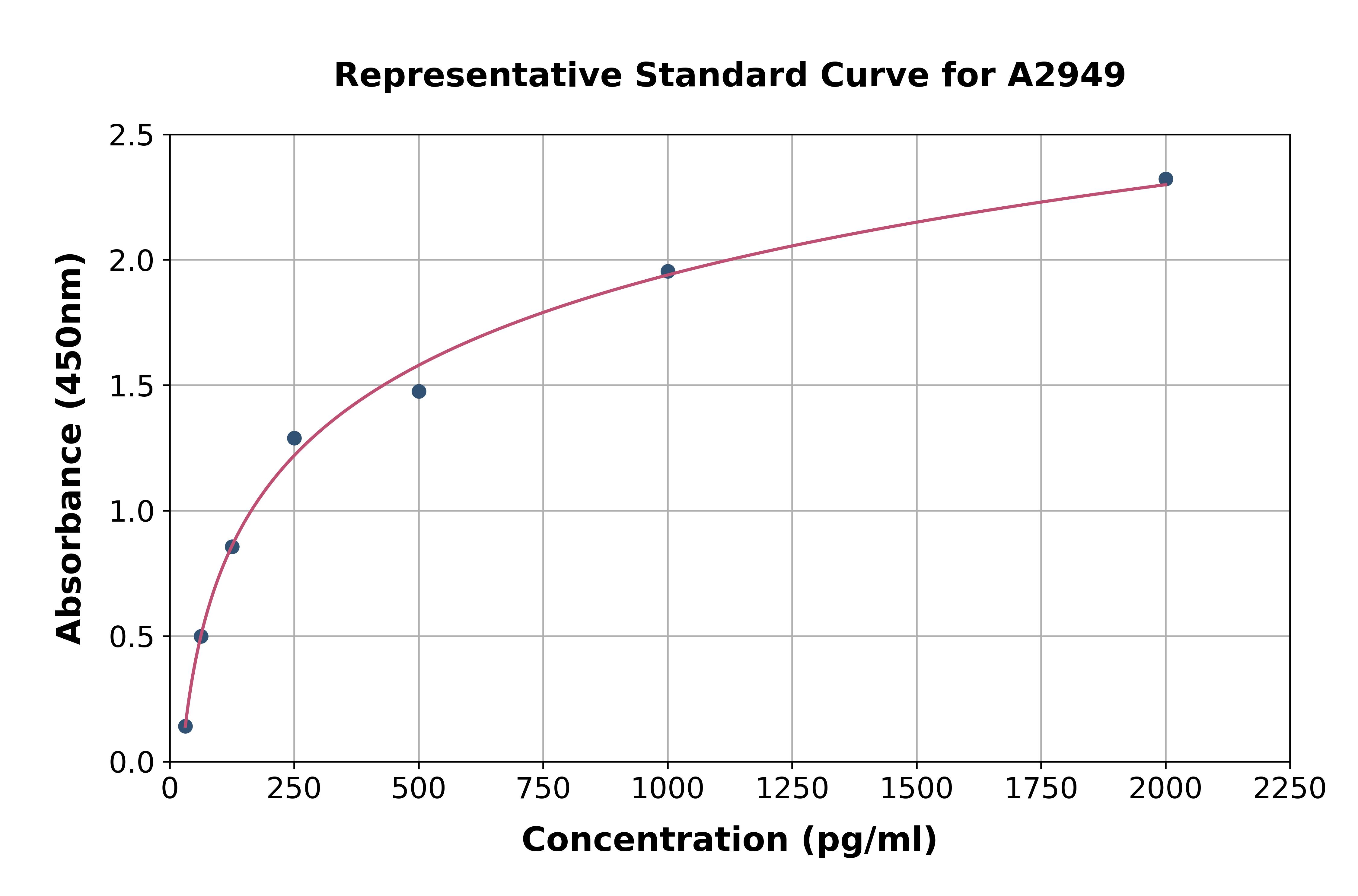
Standard Curve
IL-10 (human) ELISA Kit
AG-45B-0029
ReactivityHuman
Product group Assays
Overview
- SupplierAdipoGen Life Sciences
- Product NameIL-10 (human) ELISA Kit
- Delivery Days Customer10
- ApplicationsELISA
- Assay Detection Range3.125 to 200pg/ml
- Assay Sensitivity1.5pg/ml
- CertificationResearch Use Only
- Protein IDP22301
- Protein NameInterleukin-10
- Scientific DescriptionColorimetric Sandwich ELISA Assay. Detects human IL-10 in serum, plasma and cell culture supernatant. Range: 3.125 to 200pg/ml. Sensitivity: 1.5pg/ml. Samples: Cell Culture Supernatant, Plasma, Serum. The cytokine Interleukin-10 (IL-10) is a key anti-inflammatory mediator. IL-10 limits the immune response to pathogens and microbiota and thereby prevents damage to the host while playing important roles in other settings such as sterile wound healing, autoimmunity, cancer and homeostasis. IL-10 is the founding member of a family of cytokines that also includes IL-19, IL-20, IL-22, IL-24, IL-26, IL-28A, IL-28B and IL-29. IL-10 is expressed by cells of both the myeloid and lymphoid lineages, including macrophages, monocytes, DCs, neutrophils, mast cells, eosinophils and natural killer cells, in addition to CD4 and CD8 T cells and B cells. IL-10 is also produced by resident macrophages, such as microglia and cardiac macrophages. Some nonhematopoietic cells, including epithelial cells, also produce IL-10. Finally, tumor cells can also produce IL-10, which has been correlated with their ability to cause immunosuppression. IL-10 has many functions. It inhibits cytokine synthesis, in addition, it stimulates the growth of mast cells and thymocytes and is an activator of B cells. More specifically, IL-10 as a key mediator of the anti-inflammatory response and inhibits IFN-gamma secretion by Th1 cells, down-regulates the killing of intracellular pathogens, prevents the antigen-specific proliferation of human T cells by inhibiting the antigen-presenting capacity of monocytes through the down-regulation of class II MHC. The role of IL-10 is wide from intestinal inflammation, neuroinflammation and neurodegenerative diseases to infection or cancer. - The cytokine Interleukin-10 (IL-10) is a key anti-inflammatory mediator. IL-10 limits the immune response to pathogens and microbiota and thereby prevents damage to the host while playing important roles in other settings such as sterile wound healing, autoimmunity, cancer and homeostasis. IL-10 is the founding member of a family of cytokines that also includes IL-19, IL-20, IL-22, IL-24, IL-26, IL-28A, IL-28B and IL-29. IL-10 is expressed by cells of both the myeloid and lymphoid lineages, including macrophages, monocytes, DCs, neutrophils, mast cells, eosinophils and natural killer cells, in addition to CD4 and CD8 T cells and B cells. IL-10 is also produced by resident macrophages, such as microglia and cardiac macrophages. Some nonhematopoietic cells, including epithelial cells, also produce IL-10. Finally, tumor cells can also produce IL-10, which has been correlated with their ability to cause immunosuppression. IL-10 has many functions. It inhibits cytokine synthesis, in addition, it stimulates the growth of mast cells and thymocytes and is an activator of B cells. More specifically, IL-10 as a key mediator of the anti-inflammatory response and inhibits IFN-gamma secretion by Th1 cells, down-regulates the killing of intracellular pathogens, prevents the antigen-specific proliferation of human T cells by inhibiting the antigen-presenting capacity of monocytes through the down-regulation of class II MHC. The role of IL-10 is wide from intestinal inflammation, neuroinflammation and neurodegenerative diseases to infection or cancer.
- ReactivityHuman
- Storage Instruction2°C to 8°C
- UNSPSC41116100
- SpeciesHuman








